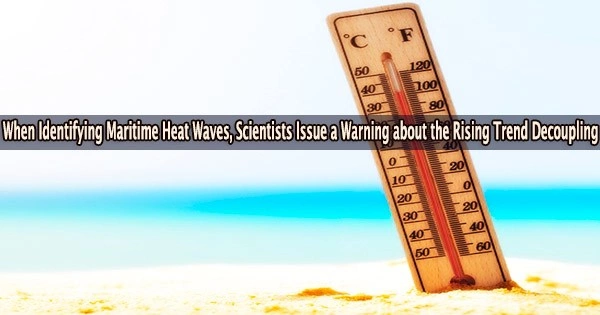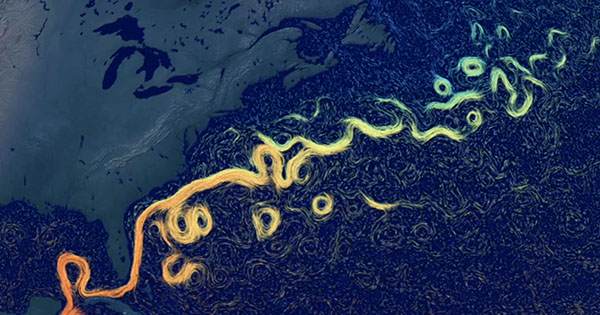Marine heat waves (MHWs) are prolonged periods of unusually warm sea surface temperatures (SSTs) in the world’s oceans. They are analogous to heat waves on land but occur in oceanic regions. These events can have significant and often detrimental impacts on marine ecosystems, biodiversity, fisheries, and even weather patterns.
The Mediterranean is not an exception to how badly the climate catastrophe is harming marine ecosystems worldwide. Massive death events are occurring over the basin as a result of the crisis’ marine heat waves. Given this situation, defining potential future situations will depend heavily on their accurate classification and characterization.
Now, a new study by the Institut de Ciències del Mar (ICM-CSIC) and the Institute of Marine Sciences of the National Research Council (CNR-ISMAR) has revealed how decoupling global warming trends affects the definition of marine heat wave characteristics.
The authors state that this would be the reason for what appears to be an increase in both the frequency and intensity of these types of catastrophic events.
To prepare the work, recently published in the journal Frontiers in Marine Science, the authors analyzed a data set corresponding to the surface temperature of the Mediterranean Sea collected during the last 41 years (1982–2022) by the Copernicus Marine Monitoring Service (CMEMS).
“Our results show that when temperature data are analyzed without trend correction during the study period, marine heat waves are not properly detected and their characteristics, such as frequency, intensity or duration, are biased,” explains J. Martínez, a researcher at the ICM-CSIC and first author of the study.
As a result, assessing surface temperature anomalies without correcting the trend leads to an increase in the frequency and severity of maritime heat waves in the most recent years of any time series under consideration, which understates the frequency and intensity of marine heat waves that occurred in the past.
The authors assert that rather than being related to a shift in the features of heat waves, this would be connected to a warming trend in the area.
Our results show that when temperature data are analyzed without trend correction during the study period, marine heat waves are not properly detected and their characteristics, such as frequency, intensity or duration, are biased.
J. Martínez
“Correcting the series by removing the trend from the data allows us to distinguish and separate between long-term warming and transient and abrupt changes in surface temperature (heat waves), obtaining a more accurate description of the properties of marine heat waves,” adds J. Martínez in this regard.
Marine heat waves can be triggered by a variety of factors, including natural variability, such as El Niño events, and anthropogenic (human-induced) factors, such as climate change. Climate change, in particular, has been linked to an increase in the frequency and intensity of MHWs, as it leads to higher overall ocean temperatures.
Main heat waves in the Mediterranean
The study also publishes a catalog of the main heat waves occurred in the Mediterranean since 1982. In total, during the period analyzed, 15 marine heat waves classified as severe and five as extreme (1989, 1993, 1999, 2001, and 2007) were detected.
These include the 1999 occurrences, which affected the most surface area of entire history, and the 2003 event, which had a large average and maximum intensity (up to 7 oC higher than usual) and affected all of the Mediterranean sub-basins for 94 days. This event also coincided with an atmospheric heat wave throughout the European continent.
Finally, the study authors highlight an event that occurred last year that lasted from May to December (131 days), although in this case, the intensities were lower than in the 2003 event.
Marine heat waves are becoming more frequent and severe due to climate change, and they have profound effects on ocean ecosystems and the communities that depend on them. Overall, the research shows how the Mediterranean is warming as a result of climate change, which increases the severity of marine heat waves.
“This is a significant challenge for the management and conservation of marine ecosystems in the region, although it is very valuable information for future studies on the impact of the climate crisis on the ocean at a time of particularly alarming sustained warming,” conclude the authors, who maintain a daily monitoring system of marine heat waves in the Mediterranean that can be accessed at this link.
















